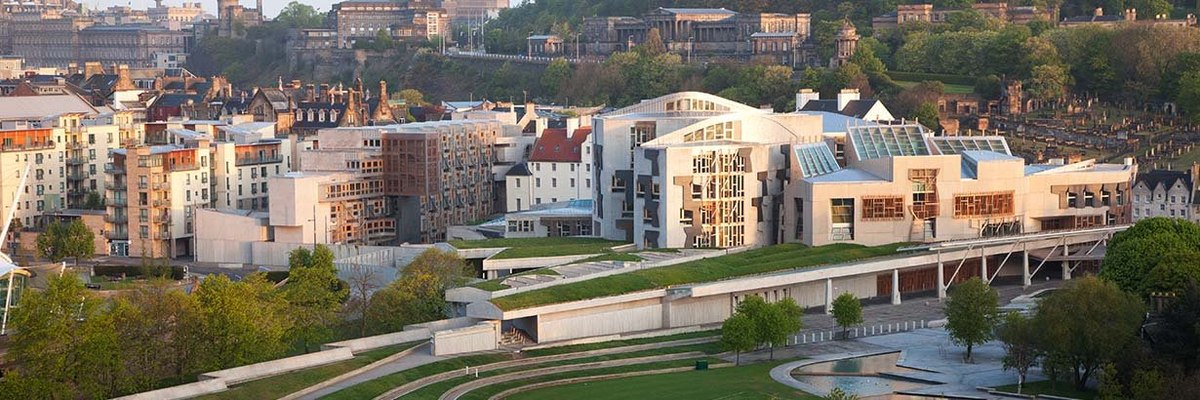The SNP are the party Scots are most likely to consider voting for, with the country near-split on independence
- 56% of Scottish people disapprove of the Scottish government, with 75% disapproving of the UK government
- 37% of Scots would consider voting SNP in a future election, more than for any other party
- Just half of 2024 Scottish Labour voters say they would consider voting for the party again
- The Scottish public is split 49% to 51% over whether or not it would back independence in a second referendum
- John Swinney is the most popular current party leader in Scotland
There's now less than six months to go until the next Scottish Parliament election, which will see the SNP asking for a fifth term in government, the Conservatives and Labour hoping to hold onto their ‘larger party’ status, and Reform UK attempt to break new ground north of the border amid their continuing lead in the Westminster polls.
So, with these crucial elections drawing ever closer, where does public opinion in Scotland stand on the key questions?
Government approval in Scotland, November 2025
Just 25% of Scots approve of the record of the Scottish government to date, while the majority (56%) disapprove of the SNP’s actions in office.
Nonetheless, this is significantly more positive than attitudes to the UK government, with only 9% of the Scottish public approving of Labour’s record in power so far, while three quarters (75%) disapprove.
Even among Scots who backed Labour last year, just 18% approve of the party’s time in office so far, while 67% feel their record is poor. This is roughly as negative as their view of the SNP’s minority Scottish government, which 69% of Labour voters disapprove of, and contrasts with 2024 SNP voters approving of the record of their party’s government by 65% to 20%.
Which parties would Scots consider voting for, November 2025?
Despite negativity towards their record in office, the SNP are the party that Scots are most likely to say they’ll consider voting for at a future election, with 37% of the Scottish public saying they are open to backing the nationalists.
This is ahead of the Greens and Lib Dems, both of which just over a quarter of Scots (26-27%) are open to considering, while 23% are willing to vote for Labour and 21% would be open to voting for Reform UK.
The Conservatives have fewer potential voters, with just 15% of Scottish people being open to backing the party, putting them on a par with the soon-to-be-launched Your Party co-led by Jeremy Corbyn, who previously said he fancied his chances in Scotland. Only 8% of Scots are willing to consider backing the Alba Party.
Just 48% of Scots who backed Labour at last year’s general election say they would be willing to vote for the party at a future election, with 35% considering the Lib Dems, and 28% open to backing the SNP. The Greens, Reform UK, Conservatives and Jeremy Corbyn’s party are being considering by between 15-23% of 2024 Labour voters.
The SNP have retained far more of their 2024 voters, with 87% saying they would consider voting for the party again, though nearly half (45%) are also open to voting Green.
Unsurprisingly, Reform UK have a stronger appeal to Scots who voted to leave the EU, with 43% of Scottish Leavers considering voting the party, more than any alternative.
Unionism continues to be a key driver for support of the Conservatives, with 27% of those who voted ‘No’ to independence in 2014 being open to considering voting Tory, relative to 6% of ‘Yes’ voters.
Indeed, the independence question continues to hang over Scottish party choice, with No voters also more likely to be receptive to the pro-Union Labour and Lib Dems, while Yes voters are more likely to consider the pro-independence SNP, Greens and Alba.
Scottish political favourability, November 2025
The SNP’s position at the top of Scottish politics can also be seen when it comes to politicians. First minister John Swinney is the most popular current party leader in Scotland, with 32% of Scots having a favourable opinion of the SNP leader, though 51% see him in a negative light.
This compares to only around one in five Scottish people (19-22%) having favourable opinions of either Reform UK leader Nigel Farage or prime minister Keir Starmer, who are both seen unfavourably by roughly seven in ten Scots (69-72%).
Kemi Badenoch is also not popular north of the border, with just 15% of Scots having a positive opinion of the Conservative leader, relative to 62% seeing her unfavourably.
Scottish Labour leader Anas Sarwar is the only Holyrood leader other than Sweeney that a majority of Scots have an opinion of, with 17% seeing him favourably and 51% unfavourably.
At least 56% of Scots say they don’t know how they feel about Scottish Conservative leader Russell Findlay, Scottish Lib Dem leader Alex Cole-Hamilton, Scottish Green co-leaders Ross Greer and Gillian Mackay, and Alba leader Kenny MacAskill. In all cases, 8-11% of Scots say they have favourable opinions of them.
Scottish independence tracker, November 2025
Last month, SNP members backed John Swinney’s plan to declare a mandate for a second independence referendum if the party wins a majority of seats next May.
If the SNP get their way and a second referendum takes place, it is currently set to be a close result. Scots who know how they would vote are near-evenly split 49% to 51% over whether Scotland should or should not be an independent country.
Support for independence has grown in the last year, having fallen to a ten-year low of 41% last August, in the aftermath of the SNP’s poor performance in last year’s general election.
With opinion so close, winning over the 13% of Scots who say they don’t know how they would vote in such a referendum will be crucial for either side. These Scots are disproportionately young, with 26% of 16-24 year olds being unsure how they would vote, compared to just 11% of 50-64 year olds and 5% of over-65s.
Whether such a referendum should happen any time soon, though, splits opinion. Scots are divided 40% to 45% over whether or not a second referendum should have within the next five years, which covers most of the term of next Scottish parliament.
Within the longer time frame of the next ten years, opposition to a new vote falls seven points to 38%. Nonetheless, less than half of Scots (44%) feel there should be a new independence referendum in the next decade.
Which party do Scots think would do best at handling key issues?
A key part of next year’s election campaign will be the parties attempting to win over public trust on the major issues facing Scotland.
Reflecting the increasingly fragmented nature of politics across the UK, in only four of the twelve issues polled are any party the top choice for more than a sixth of Scots – the SNP on standing up for Scotland (37%) and Scotland’s constitutional future (30%), the Greens on the environment (30%), and Reform UK on immigration (22%).
In other areas, the public are more divided, though the SNP do still hold statistically significant leads over other parties when it comes to education (8 points), the NHS (6 points), poverty (6 points), taxation (6 points), the economy in general (6 points) and housing (4 points).
Interested in taking YouGov surveys? How would you vote in the next Scottish parliament election? What do think of Scottish politics in general, and everything else? Have your say, join the YouGov panel, and get paid to share your thoughts. Sign up here.
Interested in commissioning YouGov research? We connect in real-time with real people around the world to gather their thoughts, behaviours, and opinions, to ensure that our research data is powered by reality. Explore our survey services here.
Photo: Getty













